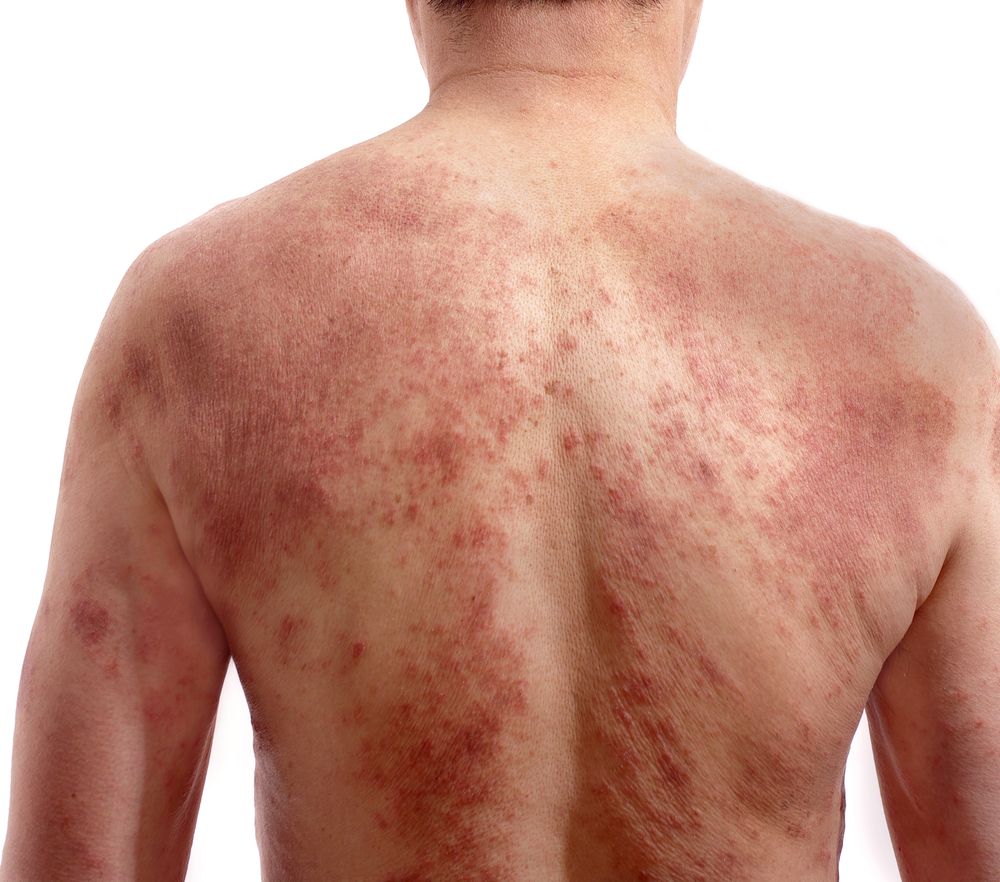- Acne
- Actinic Keratosis
- Aesthetics
- Alopecia
- Atopic Dermatitis
- Buy-and-Bill
- COVID-19
- Case-Based Roundtable
- Chronic Hand Eczema
- Chronic Spontaneous Urticaria
- Drug Watch
- Eczema
- General Dermatology
- Hidradenitis Suppurativa
- Melasma
- NP and PA
- Pediatric Dermatology
- Pigmentary Disorders
- Practice Management
- Precision Medicine and Biologics
- Prurigo Nodularis
- Psoriasis
- Psoriatic Arthritis
- Rare Disease
- Rosacea
- Skin Cancer
- Vitiligo
- Wound Care
Article
Phototherapy less utilized in practice, but still effective
Author(s):
At the 20th annual National Psoriasis Foundation residents meeting recently held in Chicago, Dr. Abby Van Voorhees, said that phototherapy can improve psoriasis, but it is not in common practice today.
Phototherapy can improve psoriasis, but it is not in common practice today. (©JosephslTanMatt/Shutterstock.com)

CHICAGOâPhototherapy is a highly effective treatment for psoriasis, but it is one that is not entirely understood among young physicians. That’s a trend that should change for residents, according to some academic dermatology leaders.
When practiced in the right setting, said Abby Van Voorhees, M.D., a dermatologist for Eastern Virginia Medical School, phototherapy can significantly improve a patient’s psoriasis. But, for a variety of reasons, it’s not as common in regular practice today.
“Phototherapy is becoming an underappreciated modality in the care of patients with psoriasis,” she said. “And, because it’s becoming less utilized, residents don’t get an opportunity to learn how to do it.”
Oftentimes, she said during the 20th annual National Psoriasis Foundation residents meeting recently held in Chicago, residents will prescribe phototherapy, asking a nurse to treat a patient. But, when the patient returns within six to eight weeks, showing improvement, the resident doesn’t have a clear understanding of how the treatment was delivered, nor how it works. Consequently, when they leave training and launch into practice, they’re less likely to offer phototherapy services themselves.
During her presentation, Dr. Van Voorhees discussed how residents can determine what kind of dosing to use for patients, as well as how to figure out the correct dose and how to administer it. Residents learned about expected clinical responses and what should be done if patients experienced an interruption in therapy.
“I want residents to feel that phototherapy is no longer a black box,” she said. “It needs to be a treatment where they can understand what’s happening when the patient leaves them and goes to the next therapy session.”
Ultimately, Dr. Van Voorhees said, she hopes more resident will consider having light boxes in their practices once they leave training. It should be a therapy option they look for in any practice they consider joining.
Overall, she said, despite the shrinking opportunities to experience and learn from phototherapy, she hopes more residents will continue to learn about the psoriasis therapy option and the benefits it provides to patients.
“Residents need to know how to evaluate patients for phototoxicity. It occurs at different times with different modalities and looks and sounds different,” she said. “I want them to know when they should be evaluating their patients for success and what the evidence of treatment efficacy is. Most important, though, residents need to know how to maintain and provide phototherapy is the need is indicated.”
REFERENCE
Van Voorhees, A. “Phototherapy & Other Light Services,” 20th Resident Meeting National Psoriasis Foundation, Chicago, Illinois. Oct. 20, 10:30-11am.
Newsletter
Like what you’re reading? Subscribe to Dermatology Times for weekly updates on therapies, innovations, and real-world practice tips.







